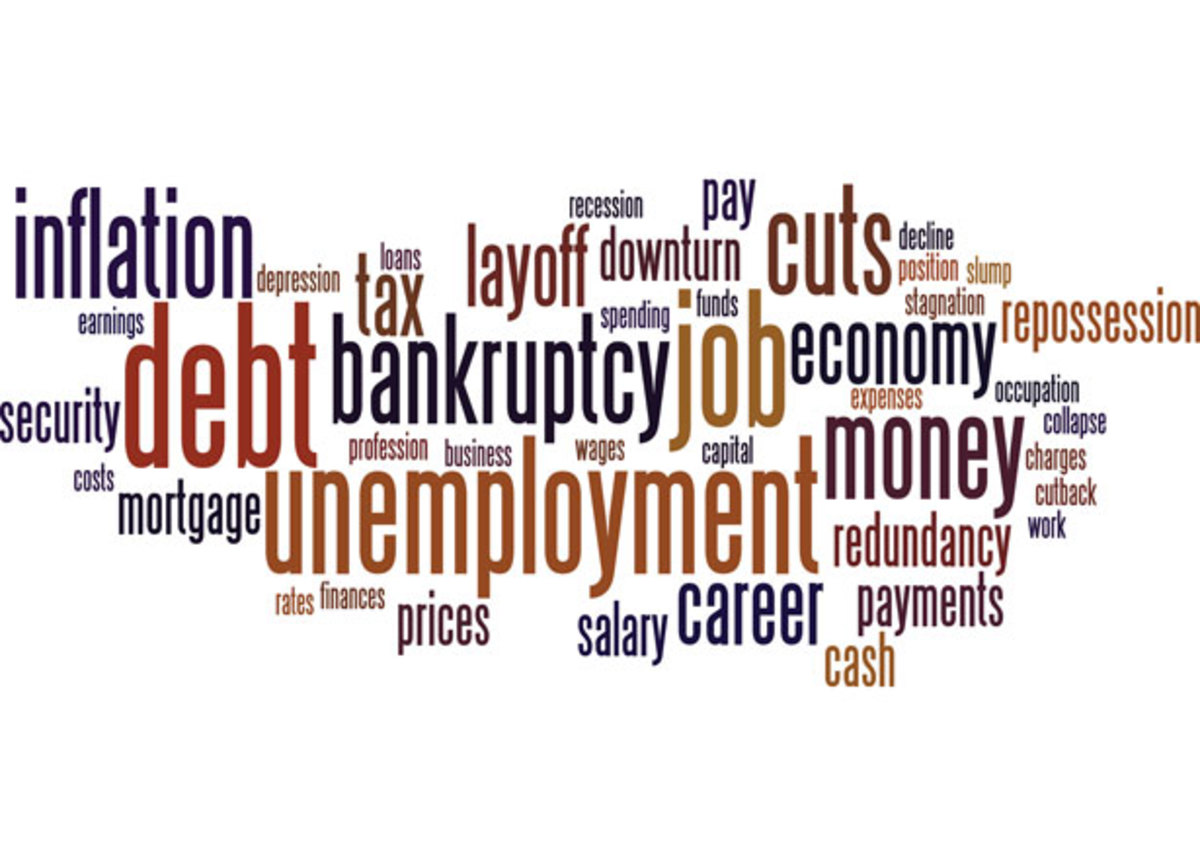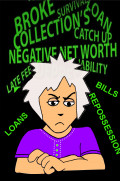How To Survive A Bankruptcy
Facing a bankruptcy can be one of the most traumatic stressors an adult can face. For most people it will trigger emotions such as shame, worthlessness, and guilt. In our society it is not just a matter of necessity or pride to provide for one’s self and family; but, it is also a matter of fitting in as a contributing member of the tribe.
What Is Bankruptcy?
According to the Merriam-Webster Dictionary, the term: bankrupt is defined as, (1) ‘an insolvent person; esp : one whose property is turned over by court action to a trustee to be handled for the benefit of his creditors.’ And, (2) ‘reduced to financial ruin; esp : legally declared a bankrupt.’
Wikipedia defines bankruptcy as a ‘legally declared inability or impairment of an individual or organization to pay its creditors.’
It’s no wonder there has been a stigma attached to filing for bankruptcy. The word ‘insolvent’ expresses ineptness, incapability-a failure; an ‘impairment’ that implies a deficiency. In a society that thrives on success through wealth filing for bankruptcy can trigger many negative emotions.
Debt = Ball & Chain

Why File For Bankruptcy?
Making the decision to file for bankruptcy should not be taken lightly. Nor, should it be the first action taken when one is faced with overwhelming debt. But, keeping a clear head and examining emotions such as fear are important steps in discovering if bankruptcy is the right choice for you.
Why should you examine your fear? Because fear is often present in emotionally charged issues and will alter your thought process interfering with clear thinking.
Here are some fears:
I am afraid I will lose my house.
I am afraid I will lose my job.
I am afraid I cannot provide for myself or family.
I am afraid I will end up on the streets.
I am afraid of what my friends and family will think of me if they knew my situation.
Being aware and willing to face one’s fears is empowering and allows you to listen with clarity at what your options are; then follow that guidance with an action plan and the resolve to stick to it. Two problems that block sound decision making are vacillation and procrastination. Indecision is an energy waster and will create confusion instead of clarity.
There are many reasons why a person will decide to file bankruptcy. Whether it is to protect your home and/or vehicle from repossession, or to offer a fresh start from insurmountable debt, sometimes bankruptcy is the only option. Two of the common causes for accumulated debt are catastrophic medical bills and job loss in which a prolonged unemployment has depleted one’s savings. So, what can one do?
Develope A Plan Of Action
1. Examine your options. People who feel backed into a corner will make decisions blindly, unable to think outside the box. Is there a temporary solution, such as moving to a cheaper place to live, that will afford the financial breathing space necessary until the situation eases?
2. Be pro-active not re-active. In the days of our crashed economy which left so many people jobless, and even homeless, it is not necessarily anyone’s fault. But, making yourself aware of your financial picture is your responsibility and part of your ability to empower yourself before any big hit. Yes, it may take some willingness to adjust ‘down’ in your lifestyle, but to sacrifice early on may result in avoiding bankruptcy.
3. Communicate. This is especially true for families. If you are single and concerned for your financial future talk with a respected financial advisor or family member who may offer support and suggestions. However, if you are part of a ‘husband-wife’ team that is a partnership and all parties involved need to be on board with the problem and the solution. Why communicate your worries? So your spouse can assist in the overall game plan.
Imagine yourself being aware there are rumors at work that you may be the next ‘cut’ while your spouse is shopping and eating out daily. Eventually there would evoke great resentment and blame.
4. Consult with an expert. An expert, when facing legal issues and the possible loss of a home or car, does NOT mean good, ole Uncle George who loves to give his opinion about money. It does mean finding a competent, reliable bankruptcy attorney whose profession is to help clients protect their assets.
5. Make your decision; be on board as a team and stick with your plan. Take the steps needed to follow the advice of the attorney. No blame-just ‘game’.
Remember: if you are in serious financial distress, in which you are behind in your mortgage payments, get help quickly. Fear can trigger immobility or avoidance, share the problem and embrace any support.
A helpful video regarding bankruptcy:
- How to Cut Costs-The Best Ideas for Frugal Living
Don't equate 'frugal' with cheap. In today's economy saving money is a necessity. Here are tried and true tips for effective family budgeting.



![Obama's General Motors [GM] Tarp Bailout - The Untold Details Obama's General Motors [GM] Tarp Bailout - The Untold Details](https://images.saymedia-content.com/.image/t_share/MTc0MTU0NDA1OTcxNzY1MTE2/obama-general-motors-gm-tarp-bailout-untold-details.jpg)




